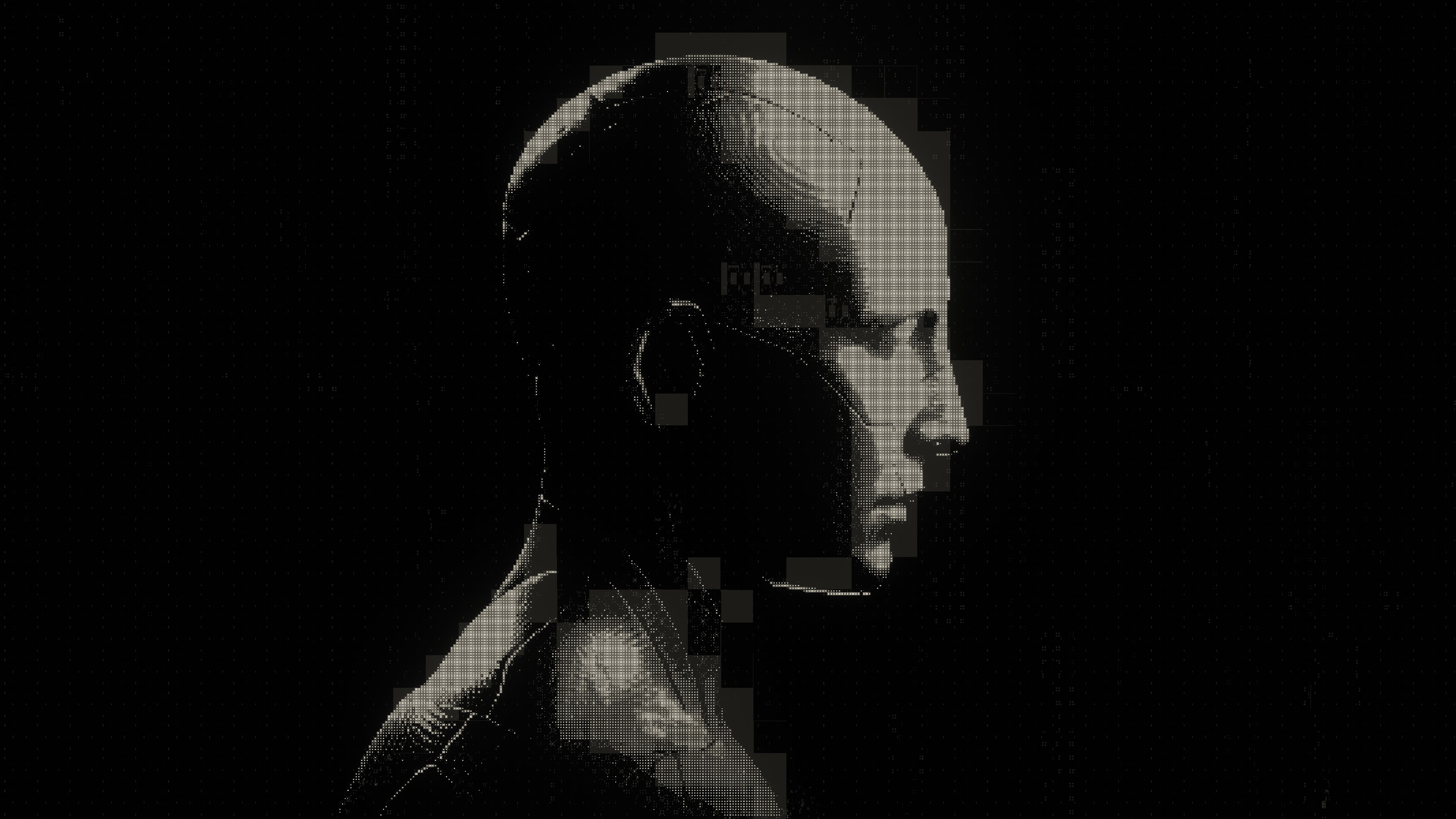
Dead Mail Review

Dead Mail streams on Shudder beginning Friday, April 18.
The first thing – the main thing – anyone would notice even just taking a glance at the indie horror-noir Dead Mail is how convincingly it looks like a videotape unearthed from some reclusive collector’s decades-old stash. It opens with a wobbly synth tone over the soundtrack that marries seamlessly with the muted colors and graininess of the images onscreen. But far from being kitschy, Dead Mail uses its analog aesthetic and tilted camera angles to charm as well as terrify, giving us reason to question our ongoing obsession with the 1980s in the process.
It begins with a letter that turns up in a local post office’s “dead mail” department. Postal employee Jasper (Tomas Boykin), a “genius” who can “track down anything,” expertly triangulates where lost letters were mailed from using the tiniest of clues found within the text, from car brand names to weather forecasts. It’s an improbable talent just a few steps away from a superpower, giving the movie a surreal edge that complements the decidedly silly main plot: The blood-stained note at the center of Jasper’s latest probe is from a supposed kidnapping victim, leading our protagonist into a scheme involving a synthesizer-obsessed villain and a soundproof basement.
Dead Mail delights in the ridiculousness of its own premise and vibe, with co-directors Joe DeBoer and Kyle McConaghy fashioning a vision of the ’80s that is more steeped in its own ’80s-ness than the real decade ever was. But rather than going for the easy signifiers like neon workout sets and roller rinks, Dead Mail sticks to dimly lit offices and home interiors lined with garish wallpaper patterns and bathrooms with questionable tile choices – more appropriate environments for a kidnapping and its amateur investigation. The absurd premise is played pretty straight, down to the “where are they now” photos that follow the final shot, as if the movie were a dramatization of something that actually happened. (It worked on me, just for a second, though I couldn’t find any mention of a kidnapped synth engineer from Peoria County, Illinois on Google.)
It’s not just the dusty home-video look and the era-appropriate electronic music that gives Dead Mail its old-fashioned feeling. The tangible is everywhere: characters photograph each other with Polaroid cameras, use leatherbound World Book encyclopedias and paper maps the size of blankets to find directions, call each other on landline telephones, craft models from mail-order kits. Even the computer screens, when seen, run on strings of green text on a black background – decidedly pre-Internet. It’s a meticulously crafted snapshot of what information networks looked like before everyone had a digital footprint, before everything was accessible through tiny computers we can hold in one hand. The whole thing feels more real, despite its heightened atmosphere and premise, than similar projects that use Halloween-costume-ready fashions or familiar pop songs as tossed-off ’80s set-dressing. You believe, while watching it, that this world exists – or at least did at one point.
Whether intentional or not, DeBoer and McConaghy seem to satirize their own act of retro-fetishization, poking fun at the movement that has taken over the horror genre ever since those Stranger Things kids first rode their bikes down the street in the fall of 1983/summer of 2016. (Not for nothing, Dead Mail shares producers and an eventual streaming home with Late Night with the Devil, which similarly presents itself as a long-lost video recording about a 1970s talk show host who made a pact with Satan.) Dead Mail’s kidnapper has a powerful, almost Cronenbergian obsession with the inner workings of the instruments his victim designs and the particular sounds their oscillating pitches generate, a preoccupation so consuming he’s willing to resort to violence. Be careful what you wish for, the movie seems to say: those things you romanticize have sharp edges.
But even for its skepticism of and warnings about retro-horror aesthetics, Dead Mail is a welcome addition to the subgenre. It’s a fun, spooky movie that winks at itself at every turn, calling attention to every small detail that builds its painstakingly realized world. There’s an appreciation for the tactile and the complex that runs through the whole movie, a love for a time when one could be a hero simply for knowing where to look to find the answers.








